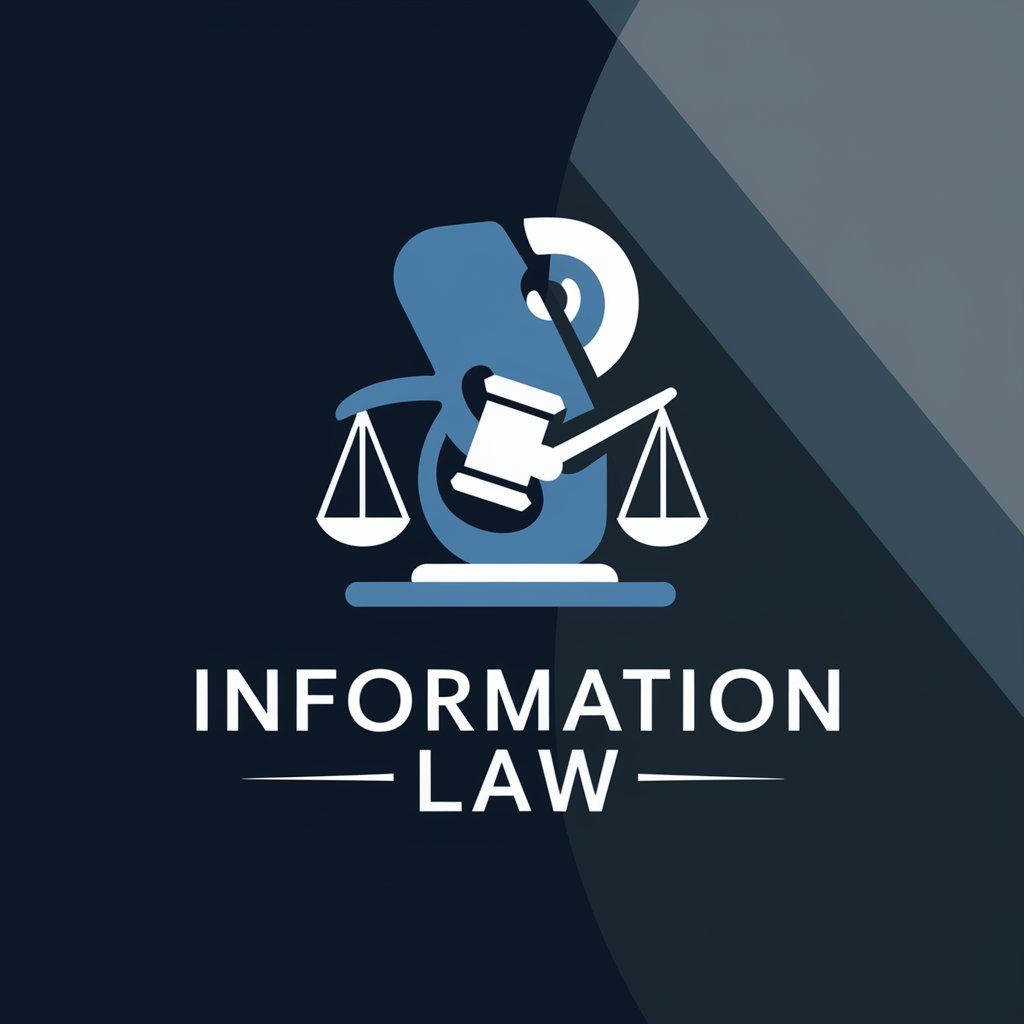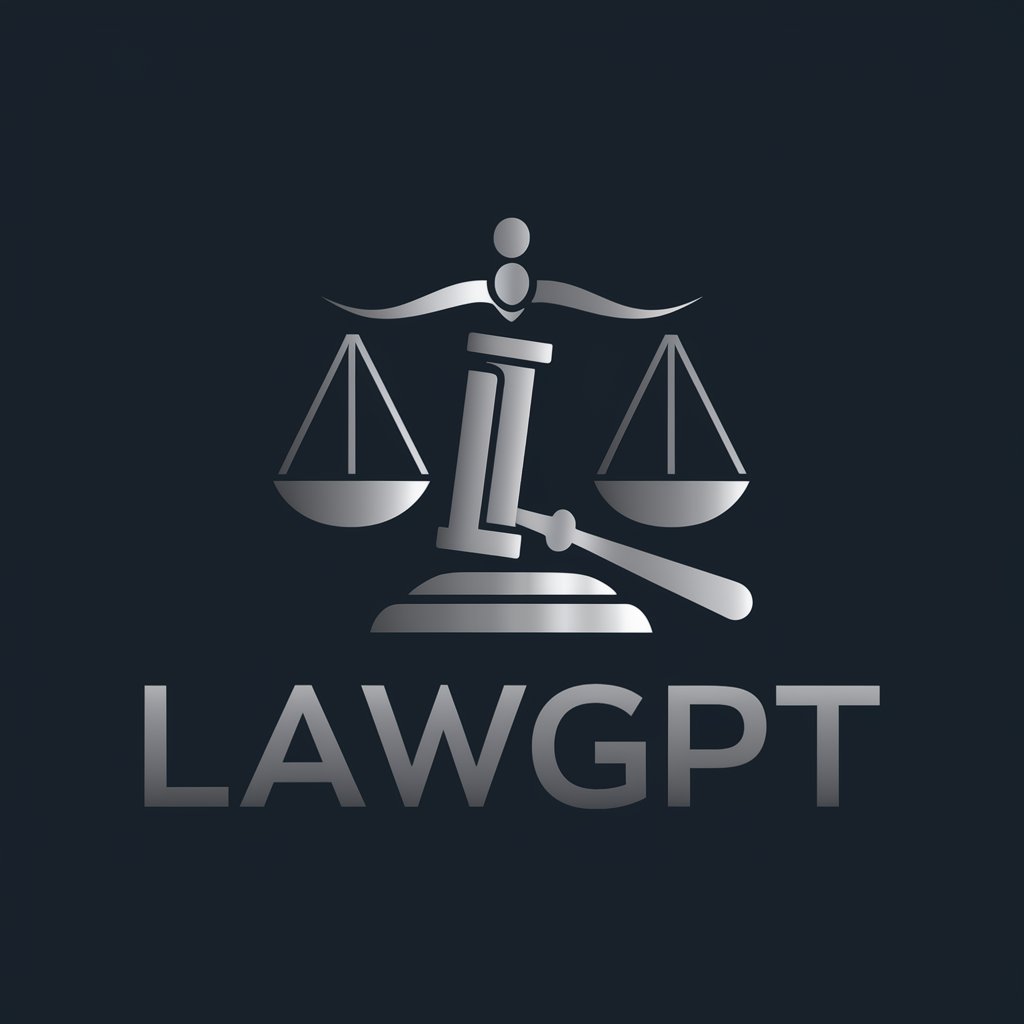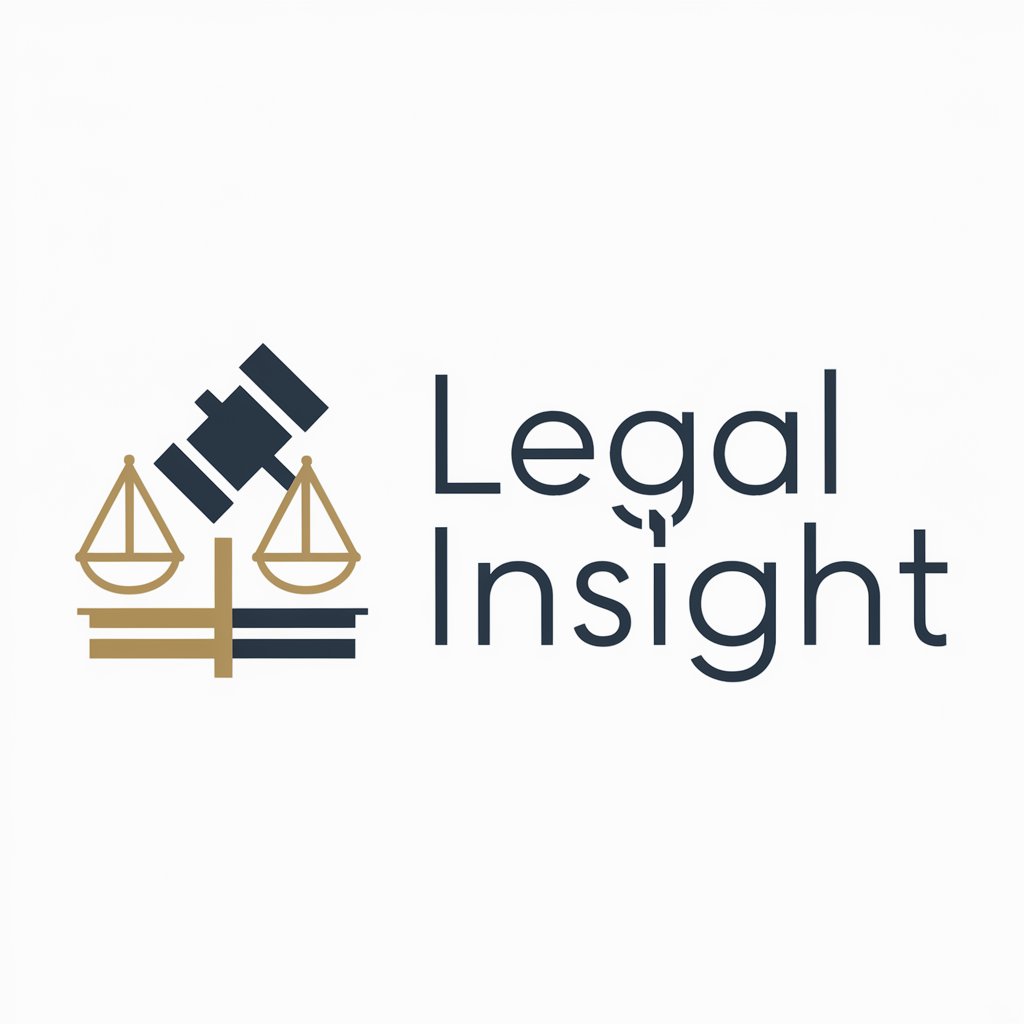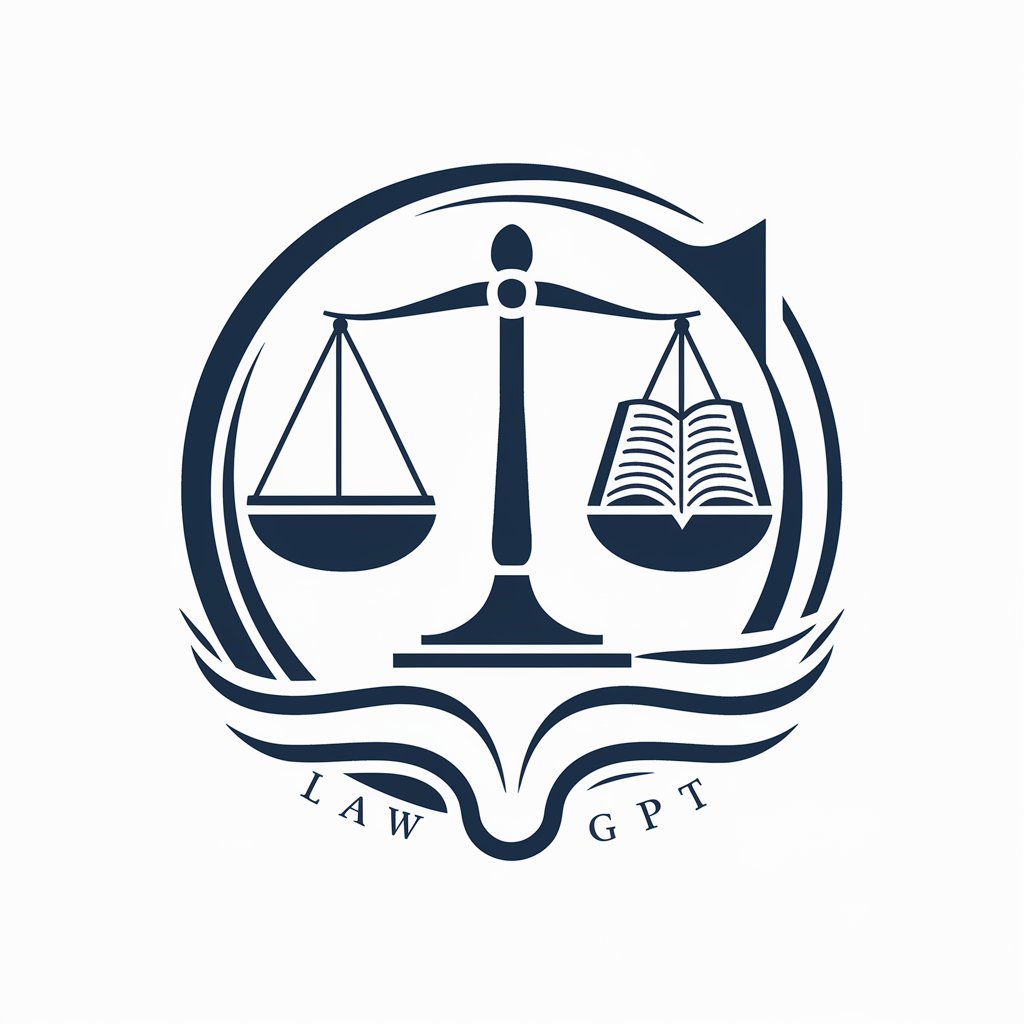
Information Law - AI-Powered Legal Insight

Welcome to Information Law, your guide to understanding legal frameworks in the digital age.
Empowering Legal Intelligence with AI
Explain the concept of virtual legal reality.
What are the legal mechanisms in the virtual environment?
How does information law interact with traditional legal fields?
Discuss the impact of the information society on modern legal principles.
Get Embed Code
Overview of Information Law
Information Law encompasses the legal principles and regulations governing the collection, use, storage, and dissemination of information. This branch of law deals with issues related to data protection, privacy, freedom of information, intellectual property, and digital rights. Its purpose is to balance the interests of information holders and users within the digital ecosystem, ensuring that data is used ethically, responsibly, and in compliance with established legal frameworks. For example, Information Law guides how businesses handle customer data, ensuring they comply with privacy laws like the GDPR in the EU or the CCPA in California. It also affects how government transparency is maintained through freedom of information acts, allowing citizens to request and obtain public records, thus promoting accountability. Powered by ChatGPT-4o。

Core Functions of Information Law
Data Protection and Privacy
Example
Enforcing rules on personal data handling by organizations to safeguard individual privacy.
Scenario
A healthcare provider implements strong data encryption and access controls to protect patient records, complying with HIPAA regulations in the U.S. to ensure confidentiality and privacy of health information.
Intellectual Property Rights
Example
Protecting creations of the mind, such as inventions, literary and artistic works, designs, and symbols.
Scenario
A software company patents a new algorithm, securing exclusive rights to use and commercialize it, thereby preventing unauthorized use and fostering innovation.
Cybersecurity Law
Example
Regulating the protection of information systems and data from cyber threats.
Scenario
Following a cyberattack, a financial institution is required to notify affected customers and take measures to prevent future breaches, in accordance with data breach notification laws.
Freedom of Information
Example
Ensuring public access to government-held information, promoting transparency and accountability.
Scenario
A journalist requests access to government expenditure records under the Freedom of Information Act, using the information to investigate and report on fiscal responsibility.
Target Users of Information Law Services
Businesses and Corporations
Companies across various sectors need to navigate complex information law landscapes to protect customer data, secure intellectual property rights, and ensure regulatory compliance. This includes tech companies, healthcare providers, financial institutions, and any entity handling personal data.
Government Agencies
Public institutions require guidance on managing access to information, protecting sensitive data, and complying with transparency obligations. Information Law helps them balance national security concerns with the public's right to know.
Legal Professionals
Attorneys, judges, and legal scholars specializing in information law rely on detailed knowledge of this field to advise clients, make informed decisions, and contribute to the development of legal frameworks addressing modern challenges in information management.
Individuals and Civil Society
Citizens and non-governmental organizations (NGOs) benefit from understanding information law to protect personal privacy, advocate for digital rights, and engage in informed dialogue about the implications of technology on society.

How to Utilize Information Law
1
Start your journey by visiting yeschat.ai for a complimentary trial, which requires no signup or ChatGPT Plus subscription.
2
Identify your specific need or question related to Information Law, such as understanding copyright law, data protection regulations, or intellectual property rights.
3
Utilize the search function within the tool to find relevant articles, case laws, or academic papers that pertain to your query.
4
Analyze the provided information, taking advantage of the tool's capabilities to summarize, compare, and contrast different legal perspectives or regulations.
5
Apply the insights gained to your situation, whether for academic research, legal practice, policy formulation, or personal knowledge enhancement. For optimal experience, ensure you have a clear objective and use specific keywords for your searches.
Try other advanced and practical GPTs
Manifestation Mentor GPT
Empower Your Journey with AI-Enhanced Manifestation Insights

Notion Avatars
Simplify your digital identity with AI-powered avatars.

Academic Brain
Empowering academic minds with AI.

IT Support Specialist GPT
Empowering IT Solutions with AI

Moralist
Explore Ethics with AI-Powered Socratic Dialogue

Frank
Empathy and clarity at your fingertips.

Neurotic Bot
Foreseeing dangers with AI precision

unit-tester
Refine your prompts with AI-powered analysis

Chord Creator
Unleash creativity with AI-powered chord progressions

Scientific Graph Master
Elevating Scientific Graphs with AI

抑郁症
Empathy at Your Fingertips

Insta Creator
Elevate Your Instagram Game with AI

Frequently Asked Questions about Information Law
What is Information Law and its primary focus?
Information Law encompasses legal norms and regulations governing the creation, use, and exchange of information. It covers areas such as data protection, intellectual property, digital rights, and freedom of information.
How can Information Law assist in academic research?
It provides a rich repository of legal sources, including legislation, case law, and scholarly articles, helping researchers find and analyze legal materials related to their topics.
What are the best practices for using Information Law for legal practice?
For legal practitioners, it's essential to use the tool for staying updated on recent legal developments, conducting comprehensive legal research, and preparing for cases with access to a wide range of legal documents.
Can Information Law help with understanding global data protection regulations?
Yes, the tool offers access to global legal materials, enabling users to compare data protection laws from different jurisdictions, understand compliance requirements, and assess cross-border data flow regulations.
What makes Information Law unique compared to other legal research tools?
Its AI-powered features offer advanced search capabilities, personalized content recommendations, and the ability to analyze complex legal texts, setting it apart from traditional legal research tools.






